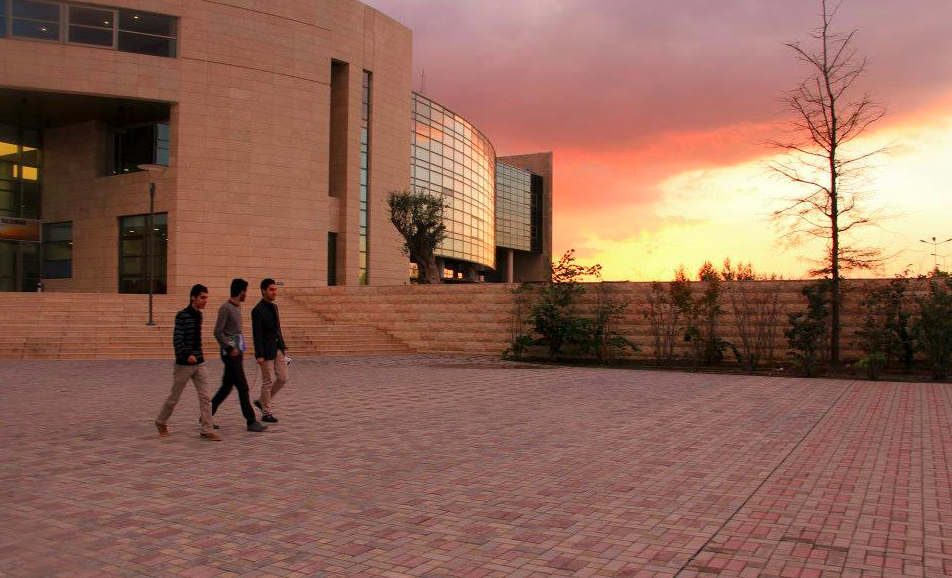
A university graduation in Sulaimaniya, Iraq.
As public awareness has risen about the dismal state of sexual assault prevention and response on college campuses, American universities have scrambled to improve their policies and programming. As administrators at a university in Iraqi Kurdistan with an American-style educational system, we decided to be proactive and create a sexual misconduct policy laying out procedures for supporting victims and adjudicating complaints. In the process of writing the policy, we learned that gender-based violence operated among our students in ways that were invisible to us as foreigners.
In the US, a university’s jurisdiction over sexual assault is based in Title IX, a civil rights law that assures that students will have equal access to educational resources regardless of gender. Experiencing gender-based violence, especially if the perpetrator is a member of the victim’s university community, has a huge impact on the victim’s ability to continue their education. They are dealing with trauma while trying to succeed academically, and possibly facing the stress of seeing the perpetrator every day. Under Title IX, universities must make sure survivors can continue their education free of ongoing discrimination or violence. This means making accommodations in housing, class schedule, campus job, or other areas; making sure survivors have access to mental health and medical care; and disciplining perpetrators.
No similar legal requirements exist in Iraq, but it was important to us to create a policy because we knew that the principle behind Title IX was applicable in our case. The barriers preventing sexual assault victims in the US from reporting or seeking help are intensified in the Iraqi cultural context. Though no incidents had been reported to my colleagues or me, we knew that this didn’t mean that there wasn’t a problem. Iraq doesn’t have any reliable statistical data about prevalence of sexual assault and gender based violence. The data available is mostly anecdotal reports collected by NGOs. We spoke to women’s right advocates familiar with the local context, and consulted with student affairs professionals at a Middle Eastern campus of an American university. However, it was an American legal entity and had to abide by Title IX requirements that didn’t apply to us.

Students walk on a university campus at sunset in Sulaimaniya, Iraq. Taken by Morgan McDaniel, 2014.
When we held focus groups with our own students, and we learned that there were a lot of issues we had been unaware of within our campus community that created a toxic, stressful environment for the female students on our campus. We had assumed that most assaults students might face would happen outside the university. We were wrong. Sexual assault between students undoubtedly occurred, but because of cultural differences, it didn’t take the same form that we’re used to in American universities. A major focus of the conversation in the US pertains to the role of alcohol, and what intoxication means for consent. In Iraq, this kind of college drinking culture does not exist, especially not in any form that women take part in. Rather, the defining factor was the ramifications of what is deemed as “honor culture” operating in a mixed-gender university environment.
Honor culture describes a cultural system where the honor of a family group rests in the sexual purity of its female members, and rumors about one woman’s illicit sexual activity, whether true or false, shame the family as a whole. Family honor is reclaimed through violence against the offending female family member. This is reflected in Iraq’s legal code, where prison sentences for “honor”-related murder are extremely light (Iraqi Penal Code Article 409). The students we spoke to were both Arab and Kurdish, and these regional cultural concerns applied across religion and ethnicity.
What this meant was that some male students were coercing their girlfriends, classmates, or friends into sexual activity by threatening their reputation. Students we spoke to shared stories about male students who got access to inappropriate photographs of female students, or photoshopped their faces onto pornographic photographs, and used these as blackmail for coercion. Some threatened to spread rumors about the victim, which would be almost as damaging. For some female students in relationships, their boyfriends threatened to spread rumors about previous sexual acts she had engaged in to coerce her into sexual acts in the future. Some male students promised their girlfriends marriage to gain consent to sexual acts, devastating their victims when this turned out to be a lie. This particular problem is actually so widespread that Iraqi legal code specifically prohibits seducing a woman by promising marriage and then refusing to marry her (Iraqi Penal Code Article 395).
These incidents are clearly examples of sexual assault. In each case, the victim did not freely consent and was devastated after the fact. However, the same shame that their assailants used to coerce them into sexual acts prevented them from getting the help they needed. The female students we spoke to had very little trust that their community would support them in the event of an assault. They were convinced that medical professionals, counselors, and even their friends would judge them for what happened, and they didn’t trust doctors or counselors from the local community to maintain confidentiality. If their confidentiality was breached, or they decided to go public on their own and file a police report, the consequences could range from social ostracism to violence committed by their family or the perpetrator’s family.
In writing our policy, we focused on the ways that we could make sure students would be supported if they were assaulted, and assuring absolute confidentiality on the part of university administrators. But the bigger issue that came out of the process was the deeply troubling gender dynamics at play that were invisible to us on the surface. Even in an environment that is considered to be more progressive than the region as a whole, female students were almost powerless in the face of threats against their reputation. Our policy came up against very real limitations on what we as administrators could do to protect students from assault. Regardless of geographical context, a radical change in cultural attitudes around women’s agency and sexuality is required in order for female students to be truly safe in their learning environment.
***All aforementioned claims of sexual assault mentioned are anecdotal, taken from interviews with students or women’s rights advocates by the author. Personal information has been omitted in order to maintain the privacy of their statements.
